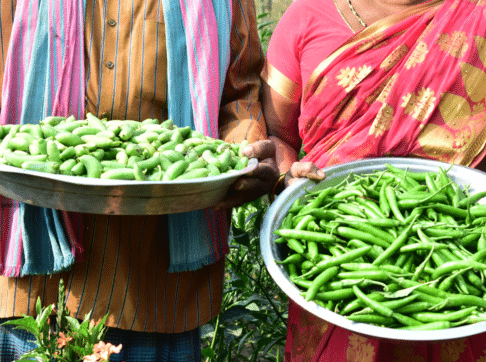Natural Farming through a Wide Angle Lens: True Cost Accounting Study of Community-Managed Natural Farming in Andhra Pradesh, India
19 July 2023
The industrialized food system is one of the biggest stressors on planetary health, contributing to almost a quarter of global greenhouse gas emissions and causing immense biodiversity loss. This model is no longer fit for purpose; it is failing people and the planet. The pioneering new study, Natural Farming Through a Wide-Angle Lens: True Cost Accounting Study of Community Managed Natural Farming in Andhra Pradesh, India, brings to light the remarkable potential of agroecological natural farming. Conducted by GIST Impact in collaboration with the Global Alliance for the Future of Food, this first-of-its-kind research provides compelling evidence supporting agroecological natural farming as a transformative approach to nourishing communities and empowering farmers while advancing the Sustainable Development Goals (SDGs).
Using True Cost Accounting methods, the study compared the economic, social, and health impacts of different farming systems in the Indian State of Andhra Pradesh. The findings challenge the prevailing belief that chemically-intensive farming is necessary to meet the food production demands of a growing population. The study demonstrates that farms utilizing natural inputs achieved equal or higher yields compared to other systems, with an average increase of 11% while maintaining greater crop diversity.
As the world grapples with the urgent need for food systems transformation, this groundbreaking research offers valuable insights for policymakers, communities, and farmers worldwide. By embracing agroecological practices like natural farming and employing frameworks like True Cost Accounting, we can scale resilient and productive food systems while promoting social and economic well-being.
True Cost Accounting Study of Natural Farming in Andhra Pradesh, India


